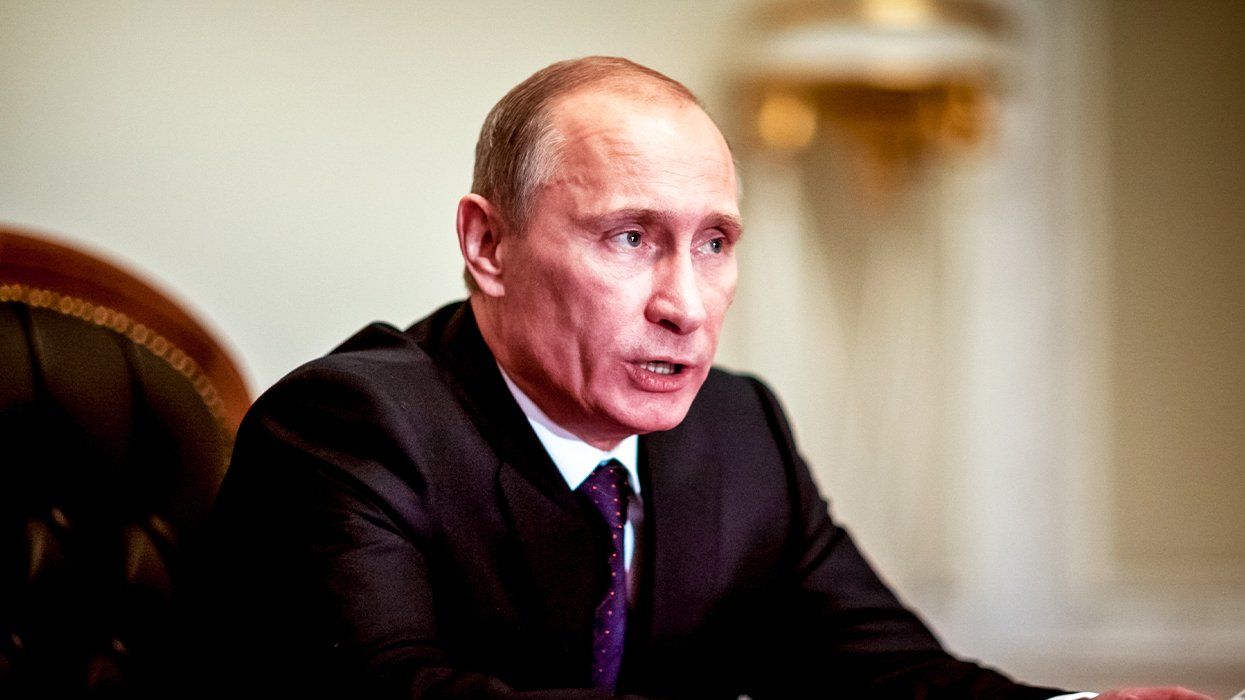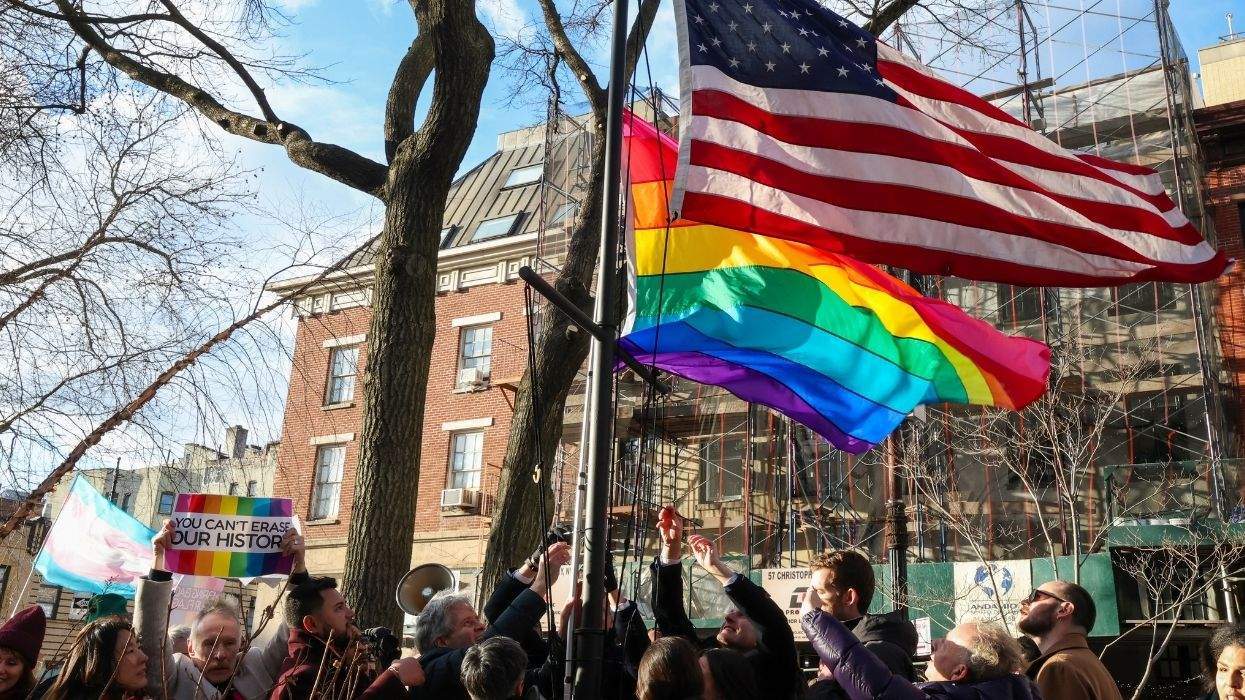Local advocates and members of the LGBTQ+ community in Russia fear violence, arrest, and a government crackdown if they are labeled as an extremist group in a court decision expected on Thursday.
On November 18, Russia’s Ministry of Justice announced it had petitioned its country’s Supreme Court to declare the “international public LGBT movement” an extremist element and ban its activities within the country.
“The Russian Ministry of Justice has lodged an administrative legal claim with the Supreme Court to recognize the International LGBT public movement as extremist and ban its activity in Russia,” the ministry said in a statement announcing the move.
The request provided no specific definition of the movement, and experts warned that Russian President Vladimir Putin would use the ruling to instigate a severe crackdown on the LGBTQ+ community.
Local activists described the case as alarming and warned the escalating moves by the government are openly fostering a hostile climate for the LGBTQ+ community with dire consequences.
“The actions of the Justice Ministry are direct incitement to hatred and encouragement of violence against people," Nikolai Rodkin, an activist in Omsk, told Radio Free Europe/Radio Liberty.
“Of course it’s very alarming, and I don’t remember the threat ever being so serious and real,” LGBTQ+ activist Alexei Sergeyev told Reuters from St Petersburg.
Out municipal deputy and opposition party member, Sergei Troshin, said he expects an increase in the already intrusive harassment he receives from the authorities, especially those looking to create a climate of fear within the LGBTQ+ community.
“Every morning I’ll expect that, at 6 a.m., people will come to search me, ring the bell, knock on the door very hard, as they usually like to do,” Troshin told Reuters. “There’ll be a search and they’ll tell me: ‘A criminal case has been opened against you for participation in the activities of an extremist organization,’ with all the ensuing consequences.”
Russia has become increasingly hostile to the LGBTQ+ community under the administration of Putin. In July he directed sexologists to help gay people overcome what he called the “mental disorder” of same-sex sexual attraction. A month earlier he ordered the Ministry of Health to create an institute to study queer people at the Serbsky Center for Psychiatry and Narcology.
In June, Russia passed a bill that banned gender-affirming surgery and treatment and outlawed changing official documents to align with a person’s true gender.
Last December, Putin signed a law strengthening a ban on LGBTQ “propaganda” in Russia and making it illegal to promote same-sex sexual relations or suggest non-heterosexual attractions are “normal.” Individuals can be fined up to 400,000 rubles ($6,370) for “LGBT propaganda” and up to 200,000 rubles ($3,185) for “demonstrations of LGBT and information that encourages a change of gender among teenagers.” The fines increase to 5 million rubles ($80,000) and 4 million rubles ($64,000) respectively for legal entities.
Putin publicly described the West and an alleged global LGBTQ+ movement as existential threats to Russian cultural values and traditions last year.
“They sought to destroy our traditional values and force on us their false values that would erode us, our people from within, the attitudes they have been aggressively imposing on their countries, attitudes that are directly leading to degradation and degeneration, because they are contrary to human nature,” Putin said of the West and its progressive values in February of 2022 while announcing the invasion of Ukraine, the NY Times reported at the time.
Members of the LGBTQ+ community have also faced harsh treatment from authorities for a range of other offenses not related to the recent anti-LGBTQ+ laws and directives.
Earlier this month, lesbian artist and activist Alexandra Skochilenko was sentenced to seven years in a penal colony for a supermarket protest last year criticizing the country’s military actions in Ukraine. On November 15, the 33-year-old artist known as “Sasha” was convicted of spreading knowingly false information about the use of the armed forces and the government’s use of its authority. She was accused of switching out the price tags at a Perekrestok supermarket with stickers that looked like price tags but contained a series of antiwar messages.
“My great-grandfather did not take part in the Great Patriotic War [World War II] for four years in order for Russia to become a fascist state and attack Ukraine,” one of the stickers read.
In August of 2022, out Olympian and WNBA star Brittney Griner was convicted of smuggling drugs with criminal intent and sentenced to nine years in a labor camp after empty vape cartridges containing remnants of THC were reportedly discovered in her luggage. Rather than proceed to trial where she faced an almost certain conviction, Griner admitted the cartridges belonged to her and confessed to inadvertently bringing them into the country.
“I never meant to hurt anybody, I never meant to put in jeopardy the Russian population, I never meant to break any laws here,” Griner told the court before her verdict and sentence were announced. “I made an honest mistake and I hope that in your ruling that it doesn’t end my life here. I know everybody keeps talking about political pawn and politics, but I hope that that is far from this courtroom.”
Despite her statement to the contrary while pleading for leniency, many believe Griner was used as a pawn by Putin against the West and the LGBTQ+ community.
Griner was released on December 8 of last year after the U.S. government conducted a prisoner swap for convicted Russian arms dealer Viktor Bout.
More recently, Sergeyev predicted a ruling in favor of Putin’s government would be a death knell to the support network for the LGBTQ+ community, denying people much-needed medical and mental health services.
“This will all be so underground that, unfortunately, I’m sure there are many people who won’t be able to get help,” Sergeyev told Reuters. “They will either [die by suicide] or simply be in some terrible state – their life will be shortened and their health will deteriorate, they will drink and smoke more, and so on, somehow trying to escape from this reality.”
















Charlie Kirk DID say stoning gay people was the 'perfect law' — and these other heinous quotes
These are some of his worst comments about LGBTQ+ people made by Charlie Kirk.